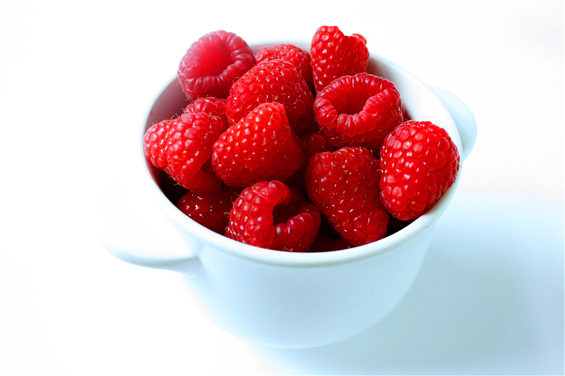There have been numerous articles lately touting raspberries as the next weight loss miracle. Trainer Lisa Lynn promoted raspberry supplements on the “Dr. Oz Show” as pills that enable the body to “burn fat easier” while producing “no side effects”. Sounds like great news, right? While I have to consider that both Lisa Lynn and Dr. Oz both sell raspberry supplements, I can still get behind the idea of raspberries helping with weight loss.
Mostly, this is due to the fact that most berries are packed with nutrition and energy boosters. Raspberries, themselves, are an excellent source of fiber, manganese, vitamin C, flavonoids, and ellagic acid (a known cancer fighting compound). They are also a good source of the B vitamins, such as B2, folic acid, niacin, pantothenic acid, and vitamin B6. In essence, they are an excellent low-calorie, nutrient-dense food.
While supplements are easy, they are not food and so are not absorbed by our bodies. We need the water and fiber content in the actual berry to get the full benefits. So go out and buy a small basket and enjoy the fresh taste while benefiting your body.
To buy raspberries, buy in small amounts as they don’t last long. They are delicate, so wash gently and pat dry. If they are not organic, use a vegetable cleaning spray to break down any pesticides. Don’t wash them until just before you eat them and refrigerate to store. If they are not in season, try frozen in a smoothie! Yum!
As a safety concern, raspberries contain moderate levels of oxalates, so if you have a history of calcium oxalate-containing kidney stones you should limit consumption.
A 100 gram serving (3/4 cup) provides:
52 calories,
1.2 grams of protein,
0.7 grams of fat,
11.9 grams of carbohydrate,
6.5 grams of fiber, and only
4.4 grams of natural sugars (fructose and glucose).

